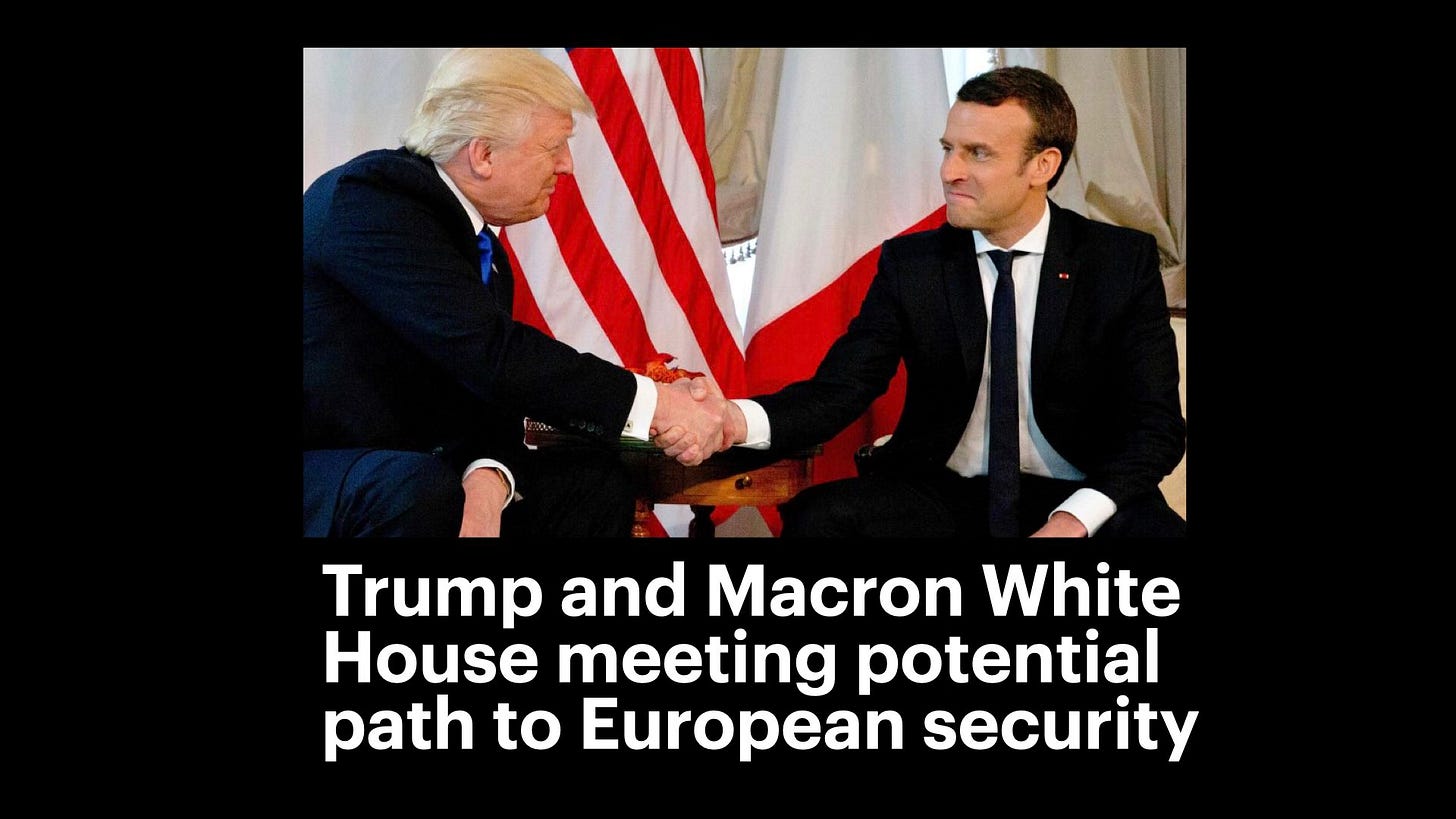Westminster's Moment of Truth: The Trump-Macron Realignment
As France seizes its chance to dominate European defence, Britain's political class risks squandering vital military leverage through characteristic diplomatic timidity
Yesterday's breakthrough between Trump and Macron represents more than just a potential end to the Ukraine conflict — it signals a fundamental shift away from what has proved to be a catastrophically destructive rules-based international order.
Breaking the Diplomatic Deadlock
Progress would not have been possible without Donald Trump's direct intervention and pragmatic approach to international relations. Whilst critics may reflexively oppose his methods, the results speak for themselves: after three years of stalemate, there is now a clear path to peace.
Beyond the Failed Liberal Order
This development represents a necessary break from the catastrophic experiments in liberal internationalism. The evidence of its failure surrounds us: from the Belfast and Windsor Agreements that effectively rewarded terrorism in Northern Ireland, to the current European security crisis. For years, Western governments have hidden behind committees, enquiries, and non-binding agreements whilst adversarial nations exploited these institutional weaknesses.
The Northern Ireland example stands as a stark warning: after surviving 30 years of murderous conflict, Ulster now bears the cost of dangerous liberal idealism that prioritised theoretical peace over practical security. This pattern of sacrificing reality at the altar of liberal dreams has become all too familiar.
The stark reality is that Europe's security architecture remains entirely dependent on American power. Without it, Europe would be dangerously exposed to aggressive state actors — a fact that many European leaders are reluctant to acknowledge.
Moving Past Emotional Politics
Critics of Trump's diplomatic initiatives consistently let emotional reactions cloud objective analysis. Meanwhile, in capitals like Westminster, political elites cling to wilful ignorance, hoping that any disruption will eventually pivot back to their comfortable status quo. This default position of those controlling our lives ensures that ordinary citizens bear the cost of their ideological intransigence. The American electorate voted for an end to foreign entanglements, and Trump is delivering on that mandate. Rather than engaging in knee-jerk criticism, observers would do better to let events unfold and judge the results.
America First, Not Rules First
Trump's approach stems from a clear-eyed assessment of American interests rather than adherence to abstract international principles. France's eager adaptation to this new reality is hardly surprising - it follows a long-established pattern of French opportunism in European defence politics. In the absence of German military leadership, France has consistently positioned itself to control European defence architecture, driven by both military ambition and defence industry interests.
The Balkans conflict of the 1990s provides a telling historical precedent: French forces pursued their national agenda so aggressively that they were often referred to as "the fourth warring faction" alongside Serbs, Croats, and Muslims. This reality of French military self-interest, masked by rhetoric about European unity, continues to shape continental politics today.
Russia's European Future
Most significantly, this breakthrough acknowledges a geopolitical reality: Russia's natural place is within the European sphere. Previous integration attempts failed not only because Western liberal leaders proved incapable of engaging effectively with Putin's Russia, but also because competing national interests - particularly France's ambitions for European defence leadership - complicated any coherent approach.
Britain's Missed Opportunity
This realignment presents a critical moment for British interests - one that Westminster appears characteristically unprepared to seize. The same European powers, particularly France, that maintained a haughty and dismissive stance during Brexit negotiations now rely heavily on British military support for European security. Logic would dictate using this leverage to negotiate favourable terms and challenge the EU's previous intransigence.
However, Westminster's establishment — more aptly "the original surrender committee" — seems likely to maintain its pattern of diplomatic capitulation. Despite holding significant military cards, Britain's political class appears more comfortable with self-defeating acquiescence than hard-headed negotiation.
The Path Forward
Complex negotiations lie ahead, but this summit marks a decisive break from the ineffective diplomatic patterns of recent years. For Britain, it presents a crucial choice: continue the establishment's pattern of diplomatic surrender or finally demand fair compensation for its military contribution to European security. The broader challenge for European nations is to recognise and adapt to this new paradigm, where practical power politics and national interests take precedence over procedural orthodoxy and liberal illusions.
For those invested in the old order, this change may be difficult to accept. For Britain's political class, it may prove impossible to abandon their ingrained habits of diplomatic submission. Yet the potential benefits — peace in Ukraine, stable European security architecture, and a more realistic relationship with Russia — far outweigh the costs of clinging to failed policies and outdated diplomatic reflexes.


